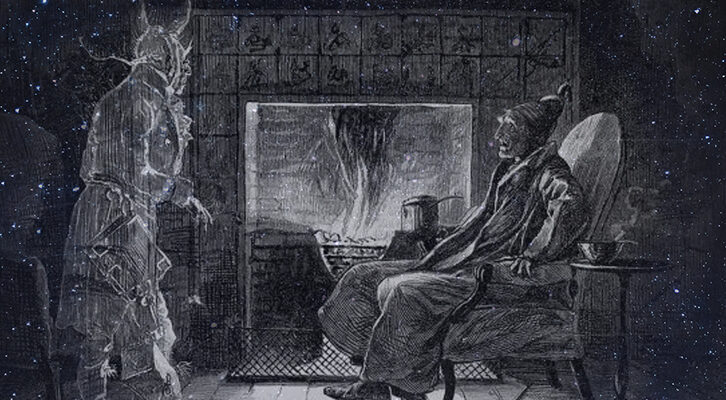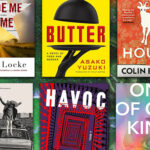Jonny Diamond on His Mother and Alice Munro
In Conversation with Whitney Terrell and V.V. Ganeshananthan on Fiction/Non/Fiction
Editor and writer Jonny Diamond joins co-hosts Whitney Terrell and V.V. Ganeshananthan to talk about Nobel Prize-winning short story writer Alice Munro, who passed away May 13 in the same Canadian town where Diamond’s mother died 12 years earlier. He outlines what made the lives of the two women similar—namely, marrying young and starting families within the parameters of 1950s expectations, and then finding their own voices after divorcing in the 1970s—and discusses how beautifully Munro wrote about the interiority of those who lived that life or an adjacent life. He reads from his Literary Hub essay, “My Mother Will Live Forever in the Stories of Alice Munro.”
Check out video excerpts from our interviews at Lit Hub’s Virtual Book Channel, Fiction/Non/Fiction’s YouTube Channel, and our website. This episode of the podcast was produced by Anne Kniggendorf.
*
From the episode:
Whitney Terrell: In your essay, you say that your mother, Margery Bird, and Alice Munro died in the same small town, Port Hope, which is close to Toronto. Can you describe that town?
Jonny Diamond: Yeah, I mean, as I mentioned in the essay, Port Hope is a town like probably thousands of other Canadian towns. I think it’s about 15,000 people at this point. And it was a farming town, then it was a small factory town. Now, since it’s about an hour and a half from Toronto, it’s a little bit more of a commuter town. It’s nestled right up there against the Trans-Canada Highway, which is at that point, I think, six lanes wide. And then Lake Ontario, it’s got a pretty, little Victorian downtown, some ’50-’60s suburbs. I mean, it really is like thousands of towns across North America.
WT: Is the Trans-Canada Highway like I-80, or is it more than that? Do you travel through empty area? Or is it a crowded highway like I-95? I’ve never been on it.
JD: When I first moved to America, I was kind of disoriented by the fact that there’s more than one major highway. The Trans-Canada is basically the one highway, because we’re a very east-west country. You go north two hours, and we’re finished. So it basically goes from Newfoundland—I hope no one from Newfoundland sees this—anyway, I think it goes from like Newfoundland, all the way to B.C. And it’s the one major, major thoroughfare, so it balloons out to eight lanes, 10 lanes when it goes through Toronto. It’s basically the defining thoroughfare of our great country.
V.V. Ganeshananthan: So going back to Port Hope, what was your mother doing in Port Hope at the end of her life? And if it’s as small a town as you’re describing, how does Alice Munro, Nobel Prize-winning author, decide to spend her last years there? And was that a decision?
JD: I mean, I can speak more to the first than the second part of your question. But my sister lives in Port Hope. And so as my mom declined, she lived with my sister, and then went into hospice care near Port Hope.
In terms of why Alice Munro was there, as I said, it’s sort of blossomed in the last 15 years as the prettier downtown. Victorians have been refurbished, and it’s a nice place. Also, it’s easily accessible from Toronto, and I think that makes it not a bad place to be if you don’t have an office job. I only saw that at the last second when I was writing that thing, and I read another obituary of Munro’s and saw that she had, in fact, died in Port Hope, and it kind of tied up the essay in a way that I could not possibly have hoped for. So yeah, just pure coincidence, really.
WT: Munro stopped writing in 2013, at least according to our intermittent internet research. What do we know about her last years? I don’t know anything. Do we know, did she have Alzheimer’s?
JD: She did suffer from dementia in the sort of back run of her life there. I didn’t do too much digging. She’s always, in terms of her actual life, been somewhat private. Easy enough to say when her stories are, to my mind anyway, hugely autobiographical, if not, in fact, an emotional register. But I didn’t have the heart, nor really the desire, to dig around too much into the retirement of Alice Munro. I’m just happy that she got to 92. Even if the remaining years of her life… I mean, who knows how they were but nonetheless, Whitney, honestly I have no idea what the last 10 years have been.
WT: I guess I was thinking about the dementia part of it, because, I mean, she has stories that are about dementia. If I’m remembering right, “The Bear Came Over The Mountain” is about that, right? So I wondered if she was prefiguring or thinking about that, worrying about that possibility if it had been in her family? I mean, people do that.
JD: Yeah, that’s actually really great. You’re probably right. I mean, I think many, many fiction writers kind of work through the possible paths of their life, either not taken or not yet taken, and I can absolutely see that, in terms of how to prepare yourself through the stories you write. I never thought of that. But yeah, of course. And I think having said all that and thinking about Port Hope, it would be, to my mind anyway, the kind of place you might go in anticipation of that quieting of the mind, which is a fairly, probably too generous, too-benign way to describe dementia. But nonetheless.
WT: Speaking as a writer, who has had family members… I have family members who have short-term memory loss, right, so that they kind of live during their time in an eternal present. It’s just a terrifying thing for a writer to have happen. I think it would be extremely difficult. And I’m sorry, if that happened, if that was what was happening to her.
You’re Canadian. You pointed out that your mother liked to read Canadian authors, not just Alice Munro, but Margaret Atwood and Margaret Laurence, and Carol Shields. And of course, Sugi just won a prize named for Carol Shields. What place did Alice Munro occupy in the broader Canadian imagination? This may seem like a dumb question. I mean, writers, artists in the United States, even the really famous ones, have a hard time competing with the popular culture. But I don’t know what that looks like in Canada.
JD: I don’t think that’s a dumb question at all because I think it is slightly different in Canada. I will qualify this question by saying that I haven’t lived in Canada in 25 years. I left in my early to mid-20s—
WT: She still would have been writing then!
JD: Oh of course she was. I guess what I’m getting at is, she wasn’t necessarily on my radar, in terms of her celebrity profile. But I mean, her and the other writers I mentioned, Atwood, Laurence, and Shields were everywhere in terms of anyone who had any interest in the literary world, or just reading and, as I said in the essay, those books were everywhere, and we got taught Margaret Laurence in school.
I’m really thankful I wasn’t assigned Alice Munro in high school. I think that was a wise decision by my high school English teacher. I think it would have been difficult and, to this day, I can’t think about Margaret Laurence without feeling kind of claustrophobic about her work, which neither of you, I imagine, have read.
WT: I’m not gonna admit that publicly, but I’m not going to argue with you.
JD: Anyway, I think she was as high profile as it gets. Margaret Atwood, much more outgoing, much more visible in the media. Even now on Twitter. So I would say Munro was a real prominent figure, but not because of anything she did actively in terms of public life. She was not a public intellectual or a public literary figure.
WT: So like, we see all these clips of James Baldwin being on TV and doing interviews or, you know, commensurate American writers from that time who crossed over into mass media in ways, but I guess that she didn’t do that. She didn’t show up on the CBC.
JD: I feel like Atwood took that role. With relish.
Transcribed by Otter.ai. Condensed and edited by Madelyn Valento.
*
“My Mother Will Live Forever in the Stories of Alice Munro” | Literary Hub
Others:
Fiction/Non/Fiction: Season 1, Episode 19: “Podcasting Pro-Tips and Jonny Diamond on Creating Lit Hub Radio” • Fiction/Non/Fiction: Season 7, Episode 32: “Claire Messud on Blurring Family History and Fiction” • Alice Munro • Margaret Atwood • Margaret Laurence • Carol Shields • James Baldwin • John Keats • Walt Whitman • Simone de Beauvoir • Anna Karenina by Leo Tolstoy • Madame Bovary by Gustave Flaubert • “Inside Alice Munro’s Notebooks” by Benjamin Hedin | Paris Review • “Wood” by Alice Munro | The New Yorker | November 16, 1980 • “Kindling The Creative Fire: Alice Munro’s Two Versions of ‘Wood'” by Lisa Dickler Awano | New Haven Review | May 30, 2012




















